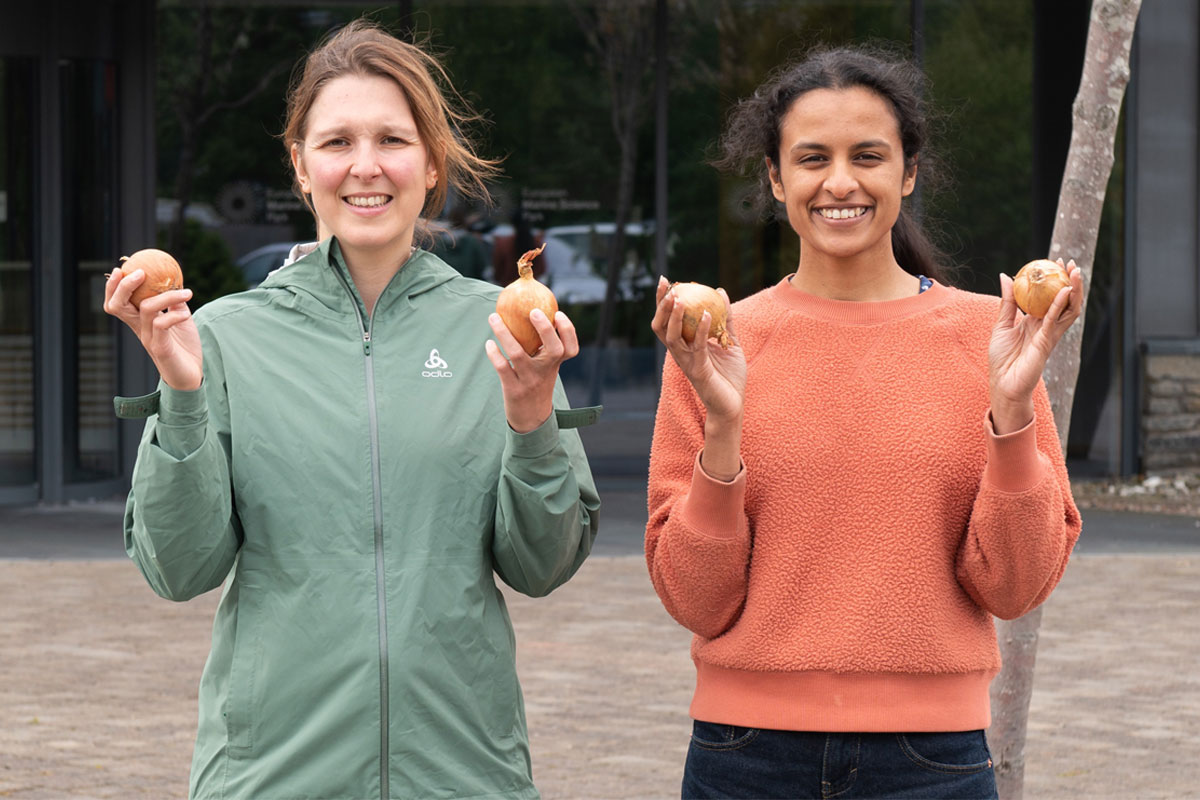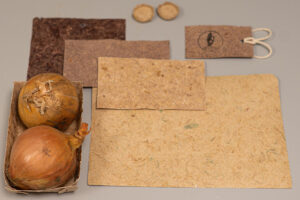Start-up firm looks to innovative pack materials

A NEW range of eco-friendly packaging materials has been made using the wasted skin and peelings of onions in a groundbreaking new initiative from HUID.
Founded by textiles specialist Renuka Ramanujam, HUID – Dutch for skin – has recently developed a new compostable packaging concept using the wastage of onions including two prototypes for a cardboard-like material called Pyber, and a more flexible film equivalent – Cellofill.

The team is being supported by the National Manufacturing Institute Scotland (NMIS) and operated by the University of Strathclyde, where the new packaging undergoes rigorous testing.
Ramnujam said: “Onion skins are nature’s own form of packaging, protecting the onion below from harm and are a plentiful waste source.
“Yet, after speaking to various scientists I realised that no one was using them as a material and spotted a gap in the market for a new variety of eco-friendly packaging.”
Producing the packaging involves extracting the cellulose from onion skins and combining it in a biopolymer blend – a blend naturally found polymer cells with complex structures – that creates a film with a mechanical strength comparable to conventional plastics.
HUID is now planning to launch the cardboard-like Pyber as its first product by the middle of next year after the start-up business recently secured £150,000 in funding from Innovate UK to improve its processing methods and manufacturing as well as a further £20,000 from climate tech programme The Greenhouse.
Ramanujam said: “Scotland boasts an excellent start-up community with universities and other networks like Scottish EDGE and IBioIC providing businesses with crucial support in their early stages.
“They’ve not only helped me access expertise and funding, but have also connected me with key industry partners and a talented pool of interns and potential employees eager to get involved with HUID and sustainable biotechnology.”






















